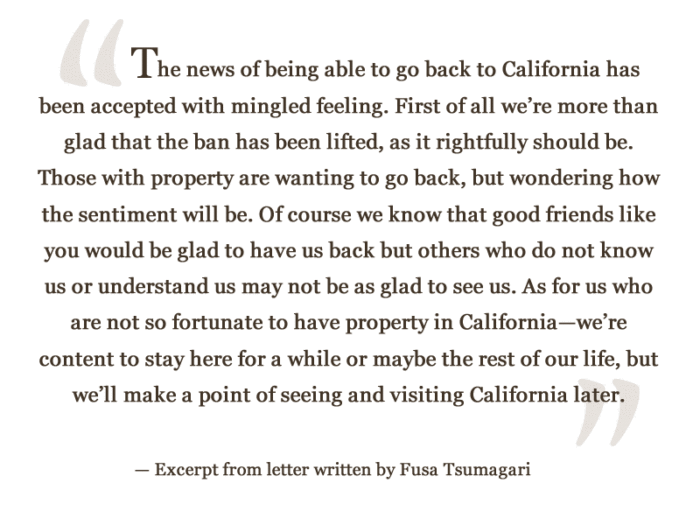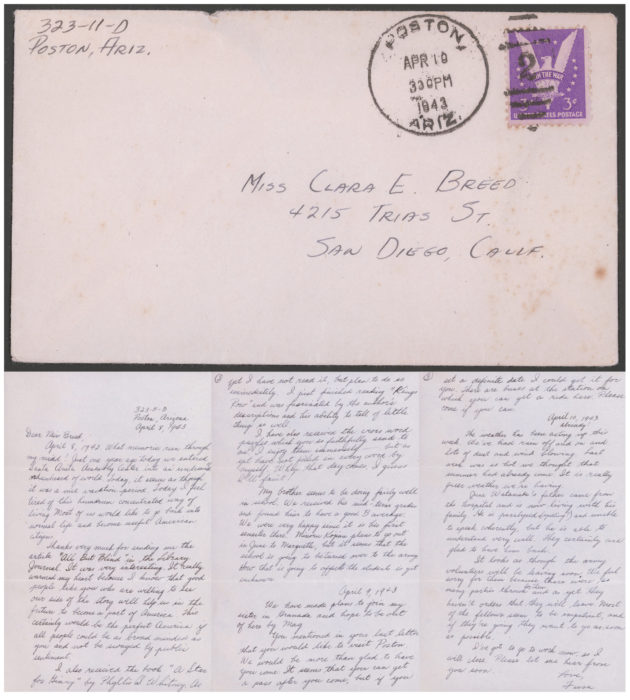Migration2

Clara Breed Collection, Japanese American National Museum, Gift of Elizabeth Y. Yamada (93.75.31S)
This is an excerpt from another letter Fusa wrote to Miss Breed. Miss Breed was the children’s librarian at San Diego Public Library from 1929 to 1945. When her young Japanese American patrons were forced into concentration camps with their families in 1942, Miss Breed became their reliable correspondent, sending them books and assisting with requests for supplies. Through her actions, she served as a reminder of the possibility of decency and justice in a troubled world.
When Fusa wrote this letter, she had already left camp in Poston, Arizona, and moved to Minneapolis, Minnesota, where her sister and brother-in-law were living.
- How would you describe the tone of this letter excerpt?
Even without reading the letters Miss Breed wrote to her students, one can find many things revealed in letters the students wrote to her.
- Based on the content of this letter, what can you conclude about Miss Breed?
- What evidence brings you to those conclusions?

Clara Breed Collection, Japanese American National Museum, Gift of Elizabeth Y. Yamada (93.75.31EW)
It was not uncommon for Japanese Americans to take different migration paths from other family members. There were many reasons for this. In some cases, the head of household was removed first and taken away. In the Tsumagari case, Fusa’s father was first taken to a Department of Justice camp. College-aged Japanese Americans, such as Fusa’s brother Yukio, could go to schools farther inland, away from the coast if they could find a school willing to accept them. Since Fusa’s sister Fuji and brother-in-law Bill lived in Los Angeles, they were sent to a different camp from Fusa, who was living in San Diego. The concentration camp to which individuals were sent was most often determined by their residence at the time of incarceration. After being released from camp, securing a job often determined where an individual resettled. Work is what drew Fusa to take a different path from her mother after leaving Poston and join Fuji and Bill, who were working in Minneapolis.
